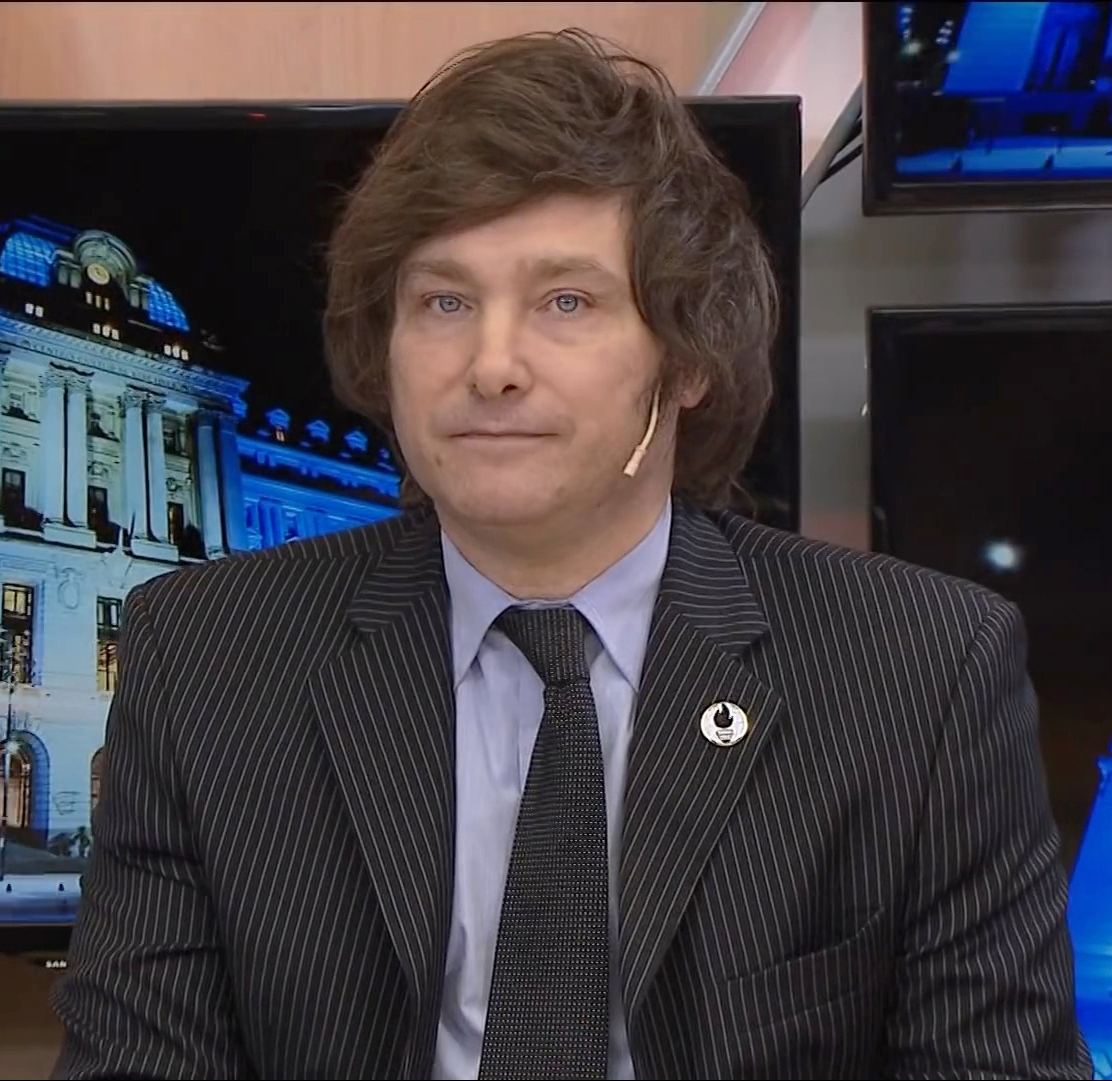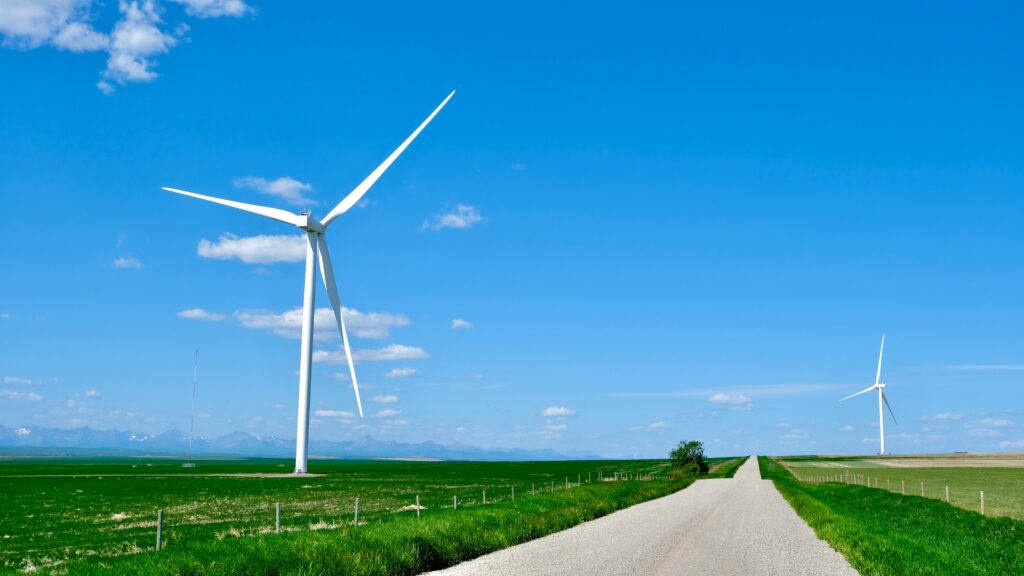Ask Argentine politician, economist, and presidential candidate Javier Milei what he thinks of climate change, and he might tell you that it’s “another lie of socialism” and “part of the agenda of Cultural Marxism.”
The right-wing politician is part of coalition Libertad Avanza and this August won the most votes in Argentina’s primary election, enabling him to run for president on October 23.
He gained prominence through his talk show appearances, making his debut on the political talk show Animales Sueltos (Stray Animals) in 2016. In addition, he hosted his own radio program called Demoliendo Mitos (Debunking Myths).
In 2021, Milei was elected as a national deputy for Buenos Aires. Prior to this, he had built an extensive career in both the public and private sectors as an economist, even holding the position of Chief Economist at HSBC.
Milei has been compared to right-wing populist leaders Donald Trump and Jair Bolsonaro due to his direct and aggressive way of speaking and his radical proposals. Milei would likely be flattered by the comparison — he is a huge fan of these right-wing populists that have emerged in recent years.
Milei won 30 percent of the vote in the August primary — nearly 10 percent more than the next-most-popular candidate — with a political platform that combines radical neoliberal policy proposals with a conservative populist moral agenda. His economic proposals include reducing the number of government ministries, cutting public spending, dollarizing the economy, and “exploding” the Central Bank, in Milei’s own words.
Milei didn’t arrive at these proposals on his own; his views, particularly in regards to the economy, have been shaped by the Atlas Network, a U.S. nonprofit that works to spread free-market think tanks all over the world.
Based in Washington, D.C., the Atlas Network supports more than 500 free-market organizations. Some of these groups, such as the Heartland Institute, are also involved in climate science denial and in campaigns against legislation to limit greenhouse gas emissions.
Around 100 think tanks in Latin America — 10 of which are in Argentina — are part of Atlas’s web. Between 2010 and 2021, Atlas gave approximately $12 million USD to think tanks in the region, mostly for “economic education,” according to U.S. tax filings analyzed by DeSmog. Across the world, including in Latin America, Atlas think tanks collaborate beyond national borders, sharing strategies and ideology. It is common, for example, for Atlas think tanks to share board members or even create their own networks, such as Red Liberal de America Latina (RELIAL).
Alberto Benegas Lynch, who serves as an adviser for Milei and also is a director at Mont Pelerin Society, is an example of transnational ties within the network. He is part of several Atlas Network groups in Latin America, such as Fundación Federalismo y Libertad and Instituto Libertad y Progreso, both in Argentina, Universidad Francisco Marroquín in Guatemala, and Centro de Estudios para el Desarrollo in Uruguay.
Lynch is also known for making denialist statements about climate change. In an opinion article published in 2018 in the Argentinian online newspaper Infobae, for example, he argued that climate change is a fraud based on distortion of statistics. He built his argument from alleged studies of John Coleman, Ivar Giaever, and Patrick Moore.
The Argentine newspaper La Nación describes the relationship between Milei and Lynch as one of admiration, as Milei frequently cites Lynch. Beyond that, Lynch wrote several times on the Instituto Libertad y Progreso’s website about his relationship with Milei, as well as his proposals, and how Milei means a miracle for Argentine politics.
Milei benefits from the whole infrastructure of ideas boosted by the Atlas Network to project himself as presidential. While the other traditional candidates do not have a platform of think tanks that can help them, Milei manages to move between these institutes and use them as hubs for disseminating his ideas and as a safe arena for advancing the debate on his agenda.
For instance, Milei has connections to other Latin American think tanks in the Atlas Network. He has attended conferences and participated in events promoted by the Fundación Libertad y Progreso, Federalismo y Libertad, and Fundación Atlas, all based in Argentina. He also participated in Instituto de Estudos Empresariais’s Liberty Forum 2022 in Porto Alegre, Brazil. Articles in Fundación Atlas’s blog praise him, with Axel Kaiser, executive director at Fundación para El Progreso in Chile, writing that Milei is helping restore Argentina’s Libertarian legacy by setting up a “cultural and political movement which became the third way.” In 2018, Fundación Atlas awarded Milei the Liberty Prize.
Milei sat on the advisory board of Fundación Libre (FL), an Argentine far-right think tank that was part of Atlas. FL promoted “individual freedom and republicanism” in the face of “hegemonic progressive ideology and the empire of politically correctness.” Although FL did not focus primarily on denying climate change, it did feature climate-related content, like a YouTube video criticizing Greta Thunberg, that has since been removed.
Milei, however, is known for denying climate change, claiming that the planet’s temperature is currently at its lowest level in the past 15,000 years. His source for this belief is a graph from a 2008 study by the geologist Don J. Easterbrook — who is known for erroneously predicting “global cooling.” However, this graph is based on data only from Greenland and is not a reliable indicator of climate change, according to fact-checking groups in Argentina.
Although Milei uses climate denialism to ignite his followers, climate change was barely discussed in the Argentine primaries, even though the occurrence of extreme weather events has increased twofold since 1980 and could become even worse in the coming decades. Instead, candidates focused on the country’s current food crisis: Argentina faces one of the biggest food inflations in the world and more than 4 million people in the country are food insecure. This scenario also could become worse due to climate change’s impacts on Argentine agriculture.
Milei’s significant result at the polls shows that the free-market, neoliberal ideals the Atlas Network is promoting have a huge organizational strength in Argentina that can be converted into votes. Even if Milei doesn’t win the October presidential election, his rise to this level of politics means a victory for the Atlas Network.
Subscribe to our newsletter
Stay up to date with DeSmog news and alerts







